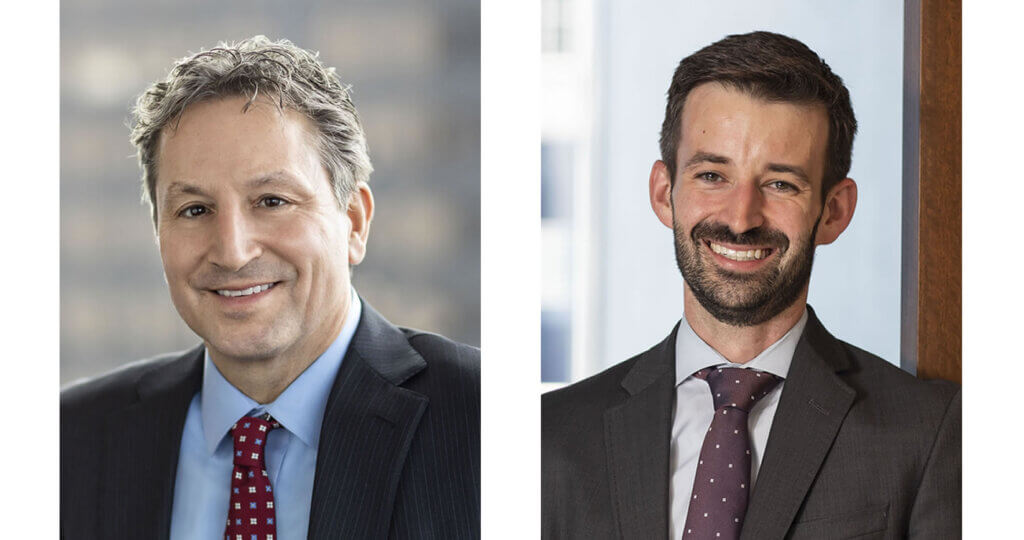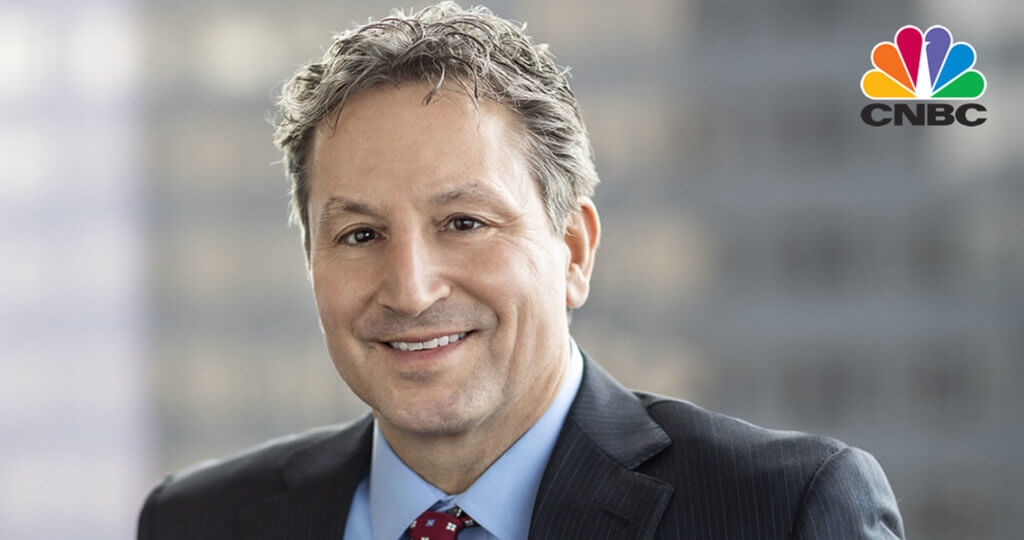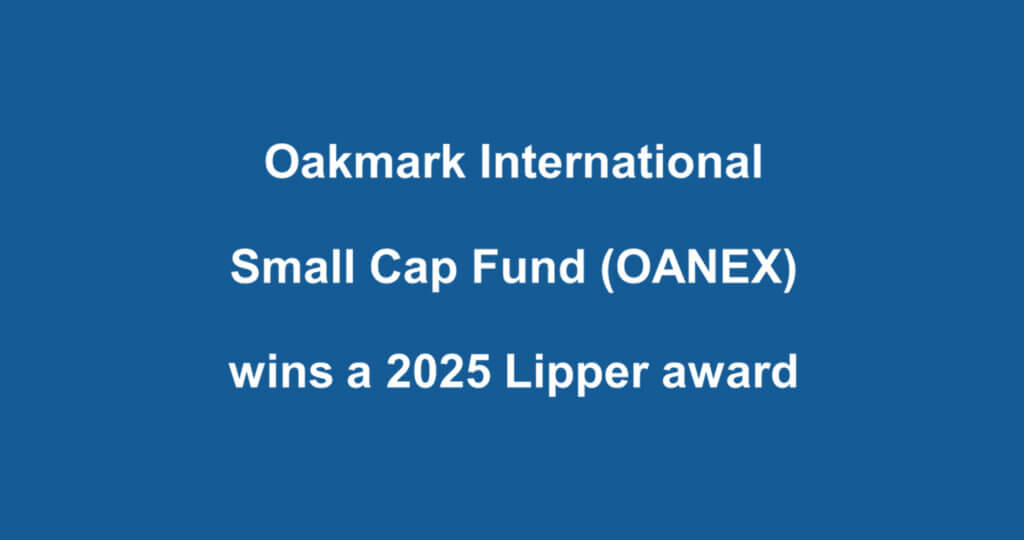Fellow Shareholders,
The year 2013 was an auspicious one for both the Oakmark International Fund and Oakmark International Small Cap Fund. The year started with an abundance of negative “macro noise,” including continued structural issues in Europe, slowed growth in the emerging markets, and a questionable reform plan in Japan. However, foreign equity markets performed well in 2013 and so did our Funds, despite some relative weakness in the fourth quarter versus the respective indices. Please see accompanying Fund letters for details.
Weighing Investment Attractiveness
Over the last 12-18 months, we found extreme value in both European and Japanese equities. As a result, going into 2013, we were overweight in these areas and quite underweight in emerging markets, as we believed that there was little or no value within emerging markets.
Within our European holdings in the Oakmark International Fund, we had a measurable overweight in the financial sector. Though we were broadly diversified within this industry group, this overweight was somewhat controversial, as popular belief held that Euro-area fiscal issues were still a long way from being solved. However, as most of our shareholders know, our approach is to focus on company-specific issues. In particular, we look at two key variables when weighing investment attractiveness: company valuation and business quality. By focusing on these two variables, we try to take advantage of the price volatility created by shorter term macro issues, to find what we view as quality companies that have experienced severe drops in their share prices but have the strength to make it through periods of economic instability and therefore perform well for our long-term time horizon. This has been our “modus operandi” since our inception in 1992, and it will continue long into the future.
Serendipity Helped
As 2013 progressed, it became evident that Europe would begin to slowly recover, partially because of self-help initiatives. Japan, too, was seriously tackling the deflation issue, which partially caused a strong yen, weak share prices and slow growth. As a result, both European and Japanese equity markets, which have been aggressively sold-off due to macro fears, began to recover. The beginning of these recoveries occurred simultaneously, giving our Funds a strong lift up. Meanwhile, our under-exposure to emerging markets helped protect us on the downside.
Traveler’s Log: Japan
In December, Director of Research Rob Taylor, analyst Eric Liu, and I spent a combined four weeks in Japan visiting companies. In fact, throughout the year, Japan was a frequent travel destination for us, as we entered 2013 significantly overweight in the Japanese equity market and many things occurred both in terms of price movement and changes in economic and corporate activity. Since the low of the Topix in 2012, the market climbed around 80%! As a result of the extremely strong uplift in prices, our holdings became less undervalued and caused us to trim some of our positions. Given that prices rose faster than corporate value creation, by the end of 2013, we were actually well underweight in the Japanese equity market.
In the meantime, Japan seems to be making some progress at addressing its structural shortcomings. Corporate Japan is somewhat behind the world in corporate governance standards and profitability. For example, an ongoing common practice is “lazy balance sheet syndrome,” which is when a surplus of cash on the balance sheet deflates returns. Another example of Japan’s lagging corporate governance is the country’s xenophobic tendencies, which are often reflected in corporate board structures where even some of the larger, global blue-chip businesses have been reluctant to have board members from both outside the executive management team and the country.
But change is happening. We now witness that some companies are parting ways from this practice. As an example, Olympus, one of our holdings, now has in our view an extremely strong Board of Directors with a significant number of independent, outside directors. Additionally, the management has stated that their key objectives are to increase operational returns and position the company to resume cash returns to shareholders. Though this type of thinking is still in the minority, it is catching on to some degree. In addition, the new LDP government is actually helping by trying to push corporate reform. Lastly, as shareholders, we have communicated to the corporate boards of many of our Japanese holdings that our voting for directors will be influenced by some of these key corporate governance issues.
Economics: Structural Reform in Japan
From an economic perspective, the weaker yen resulting from a looser monetary policy has not only helped corporate profitability, but has greatly improved sentiment. As I write, the Japanese government’s structural reform plan has yet to be fully crafted and implemented, but all else being equal, it should bring some positive change. I believe that in order for the economic recovery to endure, the Japanese government needs to implement real structural reform. This means that Japan’s government must complete at least three steps: take away protections from specific industries, like agriculture; remove impediments to productivity and workforce growth; and take away the barriers to mergers and acquisitions within corporate Japan. The good news is that when we spoke with officials from within the government, they acknowledged these issues. Time will tell if they effectively address them.
The Future
Despite the strong past performance of global equities, I believe there is still value in global equity markets. Certainly, stocks are not selling at the incredible bargains they were in early 2009 or even early 2012, but with global economic growth appearing to be poised to accelerate, and with stock valuations that are still attractive, I believe there are reasons to be confident that global equities will continue to be an attractive asset class. I extend my gratitude for all of your continued support. Happy 2014!
Past performance is no guarantee of future results. The performance data quoted represents past performance. Current performance may be lower or higher than the performance data quoted. The investment return and principal value vary so that an investor’s shares when redeemed may be worth more or less than the original cost. The performance of the Oakmark International Small Cap Fund does not reflect the 2% redemption fee imposed on shares redeemed within 90 days of purchase. To obtain the most recent month-end performance data, view it here.
As of 12/31/13, Olympus represented 1.7% of the Oakmark International Fund’s total net assets. As of 12/31/13, Olympus represented 0% of the Oakmark International Small Cap Fund’s total net assets. Portfolio holdings are subject to change without notice and are not intended as recommendations of individual stocks.
The Japanese TOPIX Index is an index that measures stock prices on the Tokyo Stock Exchange (TSE). This capitalization-weighted index lists all firms that are considered to be under the ‘first section’ on the TSE, which groups all of the large firms on the exchange into one pool. This index is unmanaged and investors cannot actually make investments in this index.
Investing in value stocks presents the risk that value stocks may fall out of favor with investors and underperform growth stocks during given periods.
Investing in foreign securities presents risks that in some ways may be greater than U.S. investments. Those risks include: currency fluctuation; different regulation, accounting standards, trading practices and levels of available information; generally higher transaction costs; and political risks.
The stocks of smaller companies often involve more risk than the stocks of larger companies. Stocks of small companies tend to be more volatile and have a smaller public market than stocks of larger companies. Small companies may have a shorter history of operations than larger companies, may not have as great an ability to raise additional capital and may have a less diversified product line, making them more susceptible to market pressure.
The Oakmark International Fund’s portfolio tends to be invested in a relatively small number of stocks. As a result, the appreciation or depreciation of any one security held by the Fund will have a greater impact on the Fund’s net asset value than it would if the Fund invested in a larger number of securities. Although that strategy has the potential to generate attractive returns over time, it also increases the Fund’s volatility.
The discussion of the Funds’ investments and investment strategy (including current investment themes, the portfolio managers’; research and investment process, and portfolio characteristics) represents the Funds’ investments and the views of the portfolio managers and Harris Associates L.P., the Funds’ investment adviser, at the time of this letter, and are subject to change without notice.







